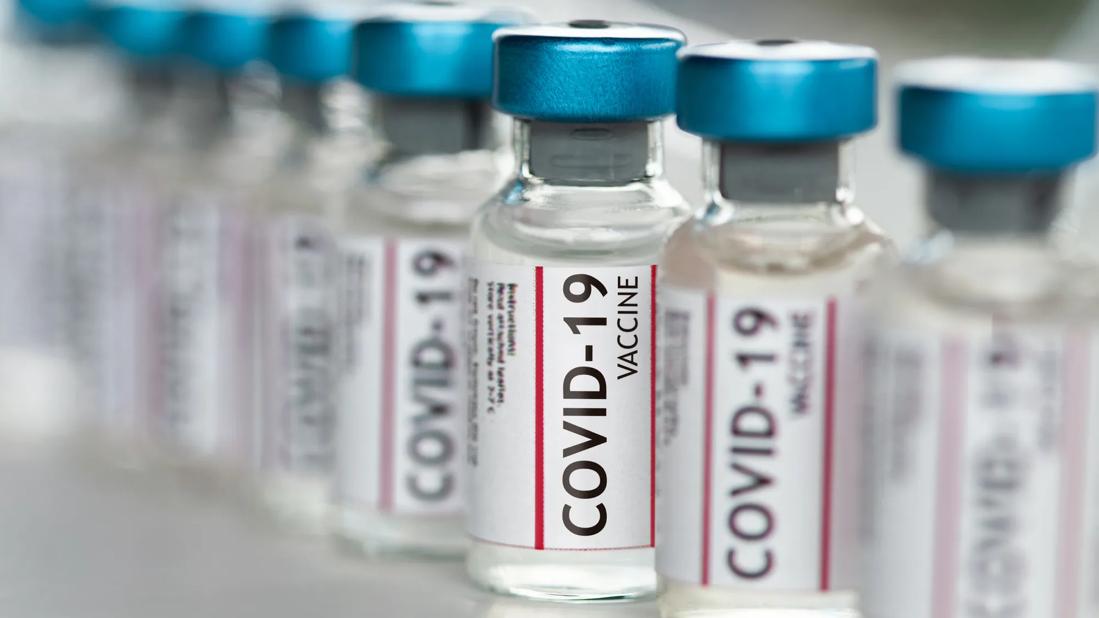Insights from the Director of the Center for Immunotherapy and Precision Immuno-Oncology

As the fight against COVID-19 continues, the apparent clinical efficacy and rapid approval of two vaccines provides hope for the future. Both use a new approach to trigger an immune response —messenger RNA (mRNA).
Advertisement
Cleveland Clinic is a non-profit academic medical center. Advertising on our site helps support our mission. We do not endorse non-Cleveland Clinic products or services. Policy
This is the first time mRNA-based vaccines have been approved for any disease. Based on efficacy and safety data from phase 3 trials, last year the FDA issued an emergency use authorization for the Pfizer-BioNTech COVID-19 vaccine on December 11 followed by Moderna’s on December 18. Both are administered in a series of two doses. Data showed that the Pfizer-BioNTech vaccine is 95 percent effective and the Moderna vaccine was 94.1 percent effective in preventing COVID-19 disease among clinical trial participants.
More than a decade’s worth of research and discovery set the stage for the timely development of these vaccines. “Prior to the advent of COVID-19, research efforts in this area have been, in large part, focused on cancer,” notes Timothy Chan, MD, PhD, Director of the Center for Immunotherapy and Precision Immuno-Oncology at Cleveland Clinic. “As a result, researchers had the knowledge and tools needed to quickly develop these COVID-19 vaccines.”
So, what are the implications for the future of mRNA-based cancer vaccines? According to Dr. Chan, the promising efficacy of the COVID-19 vaccines validates the potential of this approach. “The take-home message is that we have a proof of concept,” he explains. “As we move forward, we now know that this approach is a viable option, which I believe is a boon for the field.”
Chan acknowledged the challenges associated with developing a vaccine for cancer versus an infectious disease like the coronavirus. “Creating a vaccine for an infectious disease is very different,” he says. “The more foreign the pathogen, the easier it is for the immune system to actually fight against it. Unlike viruses, cancers arise from an individual’s own cells making it difficult to initiate an immune response or sustain an immune response. Furthermore, cancers have found ways to evade immune recognition.
Advertisement
“That being said, with the development of the COVID-19 vaccines, I predict we will see increased momentum in in the study of cancer vaccines, including RNA-based vaccines,” Chan adds. “One of the main criticisms in the past was that this method would not work. We now have evidence that not only is this a feasible option, but data also suggests it is an effective approach. We will learn more about its durability with long-term follow-up.”
With a number of benefits, including high potency, potential for rapid development and safe administration, RNA vaccines are a promising approach compared with traditional options.
While this technique has been limited due to the instability and inefficiency of in vivo mRNA delivery, recent advancements have tackled these challenges, and multiple RNA vaccine platforms have shown potential. “RNA is inherently unstable, and over the course of the last decade researchers have introduced chemical modifications to the RNA to address this,” Dr. Chan explains.
“Phase 1 trials have demonstrated that this [mRNA] approach can provide a very potent immune response in cancer,” he says. “And there are now dozens of trials underway worldwide to explore this further. Recent phase 3 studies have shown that the RNA approach can be effective.”
Dr. Chan and colleagues helped lay the foundation for cancer vaccine research — both RNA and viral approaches — with early work that highlighted the link between tumor immunity and neoantigens. Once COVID-19 is under control, he believes the cancer community will expand efforts to delve into this area of study more deeply.
Advertisement
“We need large studies — eventually phase 3 — to show efficacy and that is what researchers are working towards,” Dr. Chan notes. “The preliminary data is very promising, and my prediction is advancements in this area will continue, aided now by what we have learned with COVID-19 vaccines.”
To maximize the benefit of mRNA-based cancer vaccines, Dr. Chan notes the importance of a combination approach. “In cancer, a vaccine doesn’t necessarily work alone,” he explains. “It has to be working in conjunction with other treatments like immune checkpoint blockers to overcome tolerance.”
“Vaccines amp up the immune cells to attack cancer, but the cancer cells have developed ways to shut down T cells and that’s where treatments like anti-PD-1 come in,” Dr. Chan continues. “The difficulty now is to find all the different signals that need to be abrogated for the vaccines to fully work, which will require combinations.”
Dr. Chan is optimistic for the future and expects excitement for this approach to continue to grow with ongoing advancements. “Moving forward, I believe we will continue to see significant effort dedicated to making mRNA-based cancer vaccines a reality,” he concludes.
Advertisement
Advertisement

Early results show strong clinical benefit rates

The shifting role of cell therapy and steroids in the relapsed/refractory setting

Radiation therapy helped shrink hand nodules and improve functionality

Standard of care is linked to better outcomes, but disease recurrence and other risk factors often drive alternative approaches

Phase 1 study demonstrates immune response in three quarters of patients with triple-negative breast cancer

Multidisciplinary teams bring pathological and clinical expertise

Genetic variants exist irrespective of family history or other contributing factors

Study shows significantly reduced risk of mortality and disease complications in patients receiving GLP-1 agonists